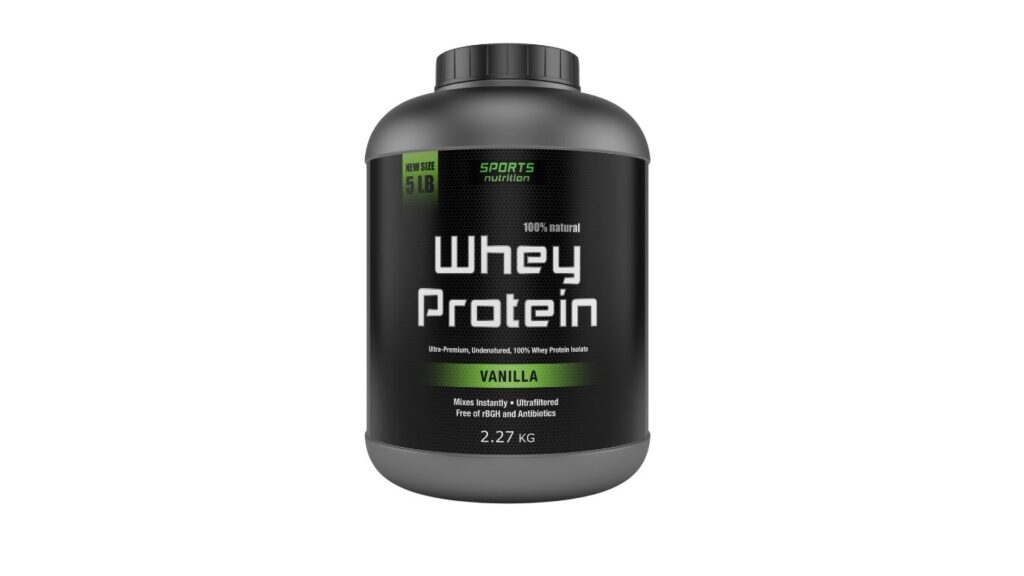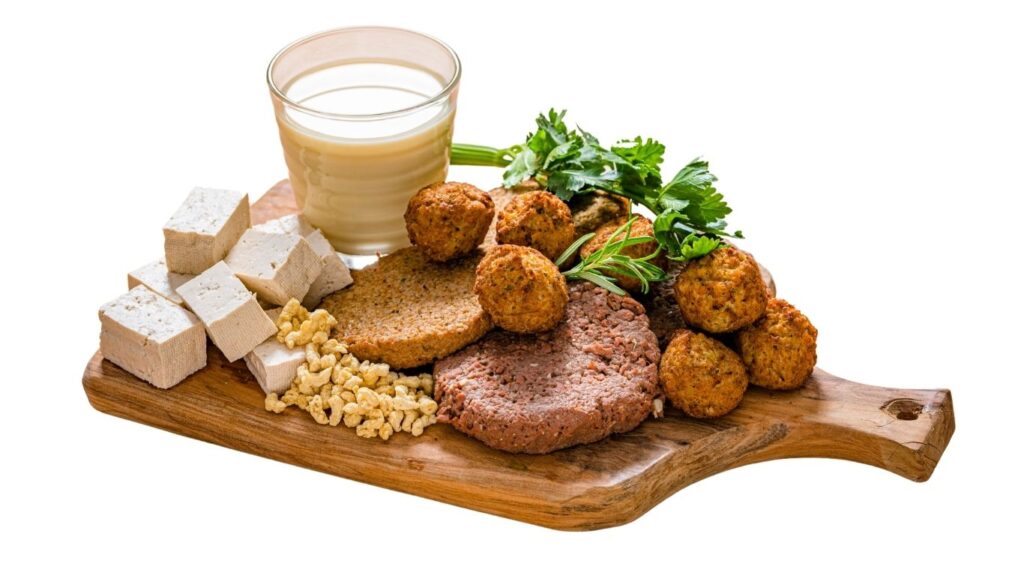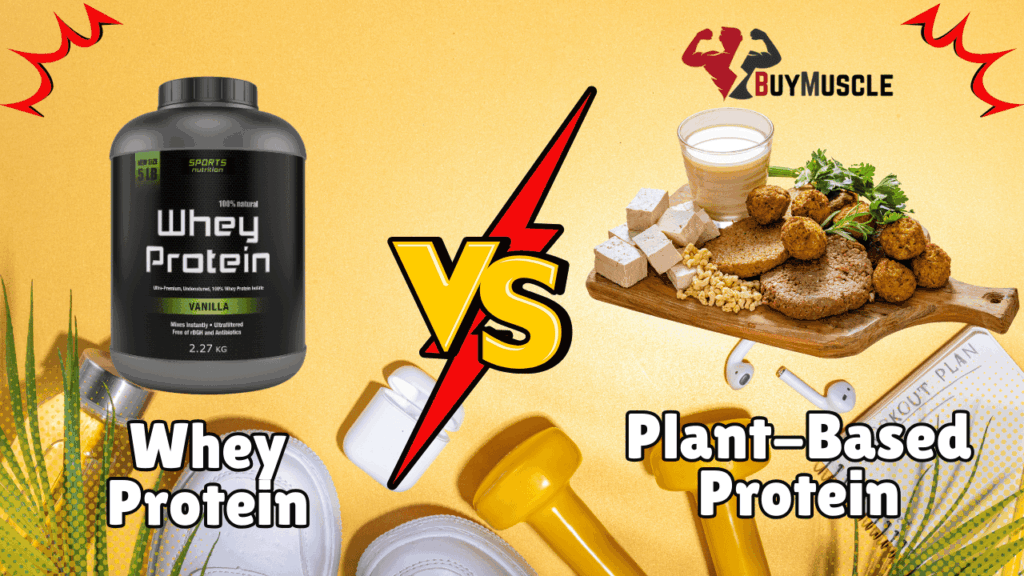Protein forms the basis of muscle development. High biological value and fast absorption have made whey protein the preferred supplement for bodybuilders and athletes for decades.
However, plant-based protein options have gained considerable attention, not only from vegans and vegetarians but also from those seeking cleaner, allergy-free alternatives.
As more athletes and fitness enthusiasts explore high-protein diets, the question arises: When it comes to building muscle with protein, is whey still superior, or can plant-based alternatives hold their own?
What Is Whey Protein?
Whey protein, a complete protein obtained from milk and used to make cheese, contains eight of the nine essential amino acids, including those that trigger muscle protein synthesis (MPS).
Whey is known for its fast digestion and absorption rate, making it particularly effective immediately after a workout. It is commonly available in three forms: whey concentrate, whey isolate, and whey hydrolysate. Each varies in protein content, lactose levels, and processing method, but all deliver rapid nutrition ideal for recovery and muscle gain.
What Is Plant-Based Protein?
Plant protein supplements come from various sources, including peas, rice, soy, hemp, and quinoa. Some products use a single source, while others blend multiple types to achieve a more complete amino acid profile.
Critical to plant proteins is completeness – many lack one or more essential amino acids. But some combinations, like rice and peas, can close that gap. Still, strategic combinations (such as rice and peas) can close that gap. Digestibility can vary among sources, and the presence of natural fiber may slightly slow absorption compared to whey.
Still, plant-based protein powders offer a diverse nutritional profile and are generally free from lactose and allergens, making them accessible to a broader range of individuals.
Muscle-Building Power: Whey vs Plant Protein
When comparing whey protein vs. plant protein for muscle growth, study several scientific variables: digestion speed, amino acid availability, particularly leucine, and the capacity to stimulate muscle protein synthesis.
Whey’s rapid digestion and high leucine concentration give it an edge in acutely stimulating MPS. Numerous studies demonstrate that consuming whey post-workout leads to superior short-term gains in lean mass and recovery.
However, research also shows that plant protein, when consumed in adequate amounts and properly formulated, can be equally effective over time. Some studies compared soy or blended plant proteins to whey during several weeks of resistance training and have found no significant difference in muscle gain when both groups consumed equal amounts of protein.
Thus, the fast muscle gain protein label may favor whey in the short term, but long-term results depend more on consistent total protein intake than protein type alone.
Benefits of Whey Protein

For several reasons, whey is the gold standard in protein supplementation. Its rapid absorption makes it ideal for post-exercise use when muscle cells are most receptive to nutrients.
Whey’s high bioavailability means the body efficiently uses more protein. It also provides all essential amino acids in optimal ratios, including a high dose of leucine, which is critical for maximizing muscle growth.
Elite athletes and bodybuilders trust whey for its effectiveness and reliability, and sports nutrition experts have thoroughly documented its history.
Benefits of Plant-Based Protein

Plant-based protein offers a viable and effective path to muscle building for individuals who avoid animal products. It is suitable for vegans, vegetarians, and those with dairy intolerance or sensitivity.
Many plant-based powders include beneficial additions such as fiber, vitamins, minerals, and antioxidants. These elements can support digestion, immunity, and overall wellness, especially when derived from whole-food ingredients.
From an environmental perspective, plant protein sources generally have a lower carbon footprint, appealing to consumers with eco-conscious priorities.
Limitations and Considerations
The two protein types have some limitations, too. Whey protein may cause bloating or gas for some people sensitive to lactose, and some users also experience skin or sinus reactions to dairy.
On the other hand, plant proteins often require formulation with multiple sources to achieve a complete protein profile. Not all plant-based supplements are equal, and some may lack adequate leucine unless fortified or carefully blended.
Texture and taste also vary widely. While whey typically mixes smoothly, some plant proteins may have a gritty texture or earthy flavor. Ingredient transparency and third-party testing are important in selecting a high-quality supplement from either category.
Which One Is Best for You?
The best protein for muscle growth depends on more than absorption speed or amino acid content. Personal goals, dietary preferences, and ethical values all influence the decision.
For athletes focused purely on performance and recovery, whey offers unmatched efficiency in triggering muscle protein synthesis. However, with the right formulation and quantity, plant vs whey for bodybuilding becomes a more level playing field.
Many lifters successfully combine both, using whey post-workout for rapid recovery and plant protein during other meals for diversity and digestion ease. Ultimately, achieving the recommended daily protein intake, spread across meals and training windows, matters more than protein origin alone.
Frequently Asked Questions
Is whey protein better than plant protein for muscle growth?
Whey has a faster absorption rate and higher leucine content, giving it an edge for short-term muscle protein synthesis. However, when plant protein is properly blended and consumed in adequate amounts, it can support similar muscle growth over time.
Can plant protein build muscle as effectively as whey?
Yes, studies have shown that with matched protein intake and complete amino acid profiles, plant proteins can support comparable muscle gains to whey, especially when used consistently with resistance training.
Can I take both whey and plant protein?
Yes, combining both can offer benefits. Many individuals use whey post-workout for its fast action and plant protein at other times for its broader nutritional profile.







